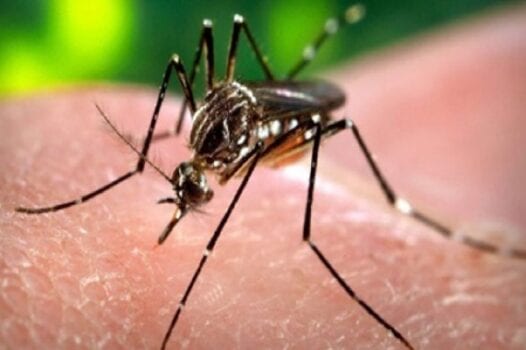By Dr Joel Enejeta
The zika virus is a single stranded RNA virus which belongs to the genus flavivirus and the family flaviviridae.
Zika is closely related to dengue, yellow fever, Japanese encephalitis and west nile viruses.
The zika virus is primarily transmitted through the bite of an infected aedes mosquito.
WHERE ZIKA OUTBREAKS HAS OCCURRED
Before the year of 2015, zika outbreaks has occurred in Africa, southeast Asia and the pacific islands. As at middle of this year 2016,outbreaks are occurring in 48 countries and territories.
MODE OF TRANSMISSION OF ZIKA VIRUS
The zika virus can be transmitted through the following means.
- Through the bite of an infected aedes mosquito
- From mother to baby during pregnancy(materno-foetal transmission) which can occur during intrauterine and perinatal period.
- Sexual transmission from infected male partners
A man with zika virus can pass it to his female or male sexual partner. Zika can be passed before, during and after the onset of symptoms. In known cases, the men had vaginal, anal or oral(mouth-to-penis) sex without a condom. The virus can stay in the semen more longer than in blood but the exact duration is not yet known.
- It can also be transmitted through laboratory exposure.
- It can also be transmitted through blood transfusion, organ transplant and breastfeeding.
INCUBATION PERIOD OF ZIKA VIRUS AND VIRAEMIA
The incubation period for zika virus disease is 3-14 days.
Zika viraemia ranges from a few days to one week.
Virus remains in the semen longer than in blood.
ZIKA VIRUS CLINICAL DISEASE COURSE AND OUTCOME
The clinical illness is usually mild and symptoms last several days to week. Severe disease requiring hospitalization is uncommon, fatalities are rare.
Guillain-barre syndrome has been reported in patients following suspected zika virus infection but its relationship to zika virus infection is unknown.
SYMPTOMS OF ZIKA VIRUS DISEASE
Many individual which are infected with zika virus are asymptomatic, however the following symptoms are common among sufferers.
- Acute onset of fever
- Presence of maculopapular rash
- Joint pains
- Conjunctivitis
- Others include muscle pain and headache.
ZIKA VIRUS AND PREGNANCY OUTCOME
Zika virus can pass from a pregnant woman to her foetus during pregnancy or around the time of birth.
Zika infection in pregnancy is a cause of microcephaly and other severe brain defects. Other problems include eye defects, hearing loss, impaired growth and foetal loss.
HOW TO PREVENT THE CHANCE OF SEXUAL TRANSMISSION
Not having sex can eliminate the chance of getting zika virus. Condoms can also reduce the chance of getting zika from sex.
Pregnant couples with a male partner who lives in or recently travelled to an area with zika should use a condom correctly from start to finish any time they have vaginal, anal or oral sex throughout the pregnancy.
For non-pregnant couples with a male partner who has recently travelled to an area with Zika;
-If the male partner has been diagnosed with Zika or has (or had) symptoms, the couple should consider using condoms or not having sex for at least 6 months after symptoms begin.
-If the male partner does not develop symptoms, the couple should consider using condoms or not having sex for at least 8 weeks after the man returns.
For non-pregnant couples with a male partner who lives in an area with Zika;
-If the male partner has been diagnosed with Zika or has (or had) symptoms, the couple should consider using condoms or not having sex for at least 6 months after symptoms begin.
-If the male partner does not develop symptoms, the couple should consider using condoms or not having sex as long as there is Zika in the area.































